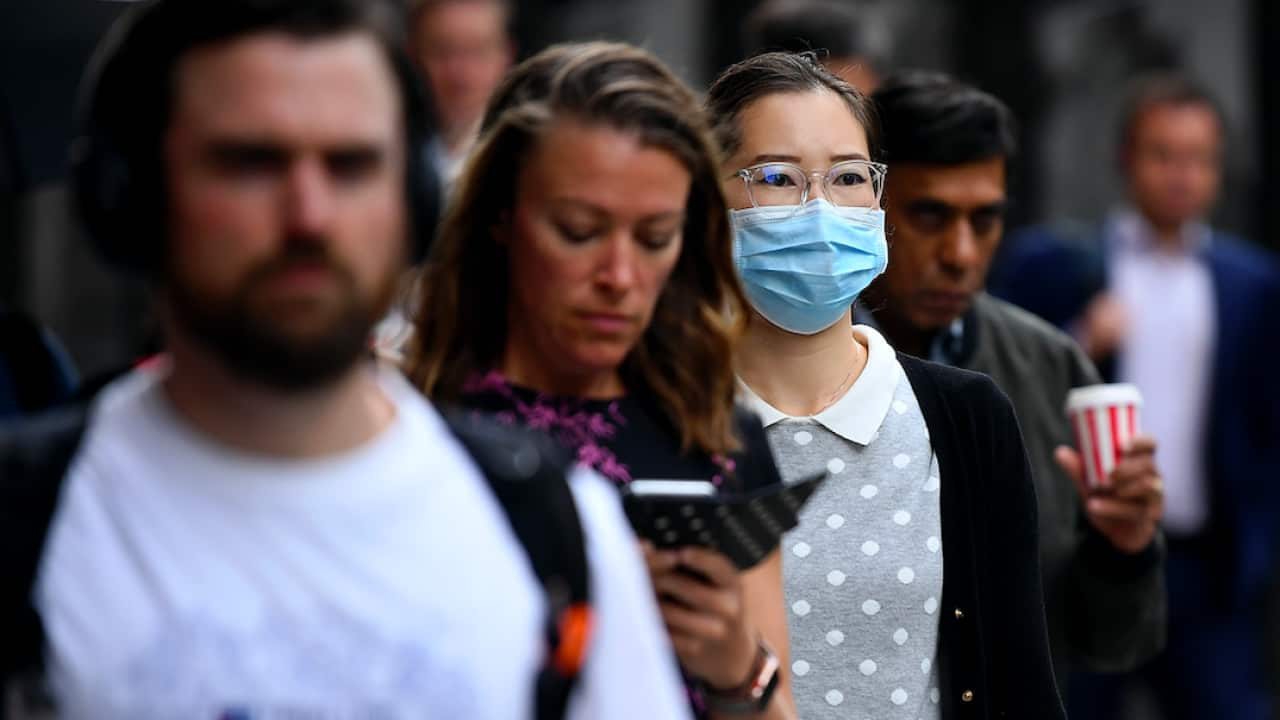Toolsika Rawoah began her studies in Melbourne in March last year.
The 21-year-old was about to embark on a three-year criminal justice course at Victoria University and was apprehensive but looking forward to the experience.
"Coming from a small island in Mauritius to a country like Australia, I was really scared of how the culture would be here, but luckily I was able to get good support from people," she told SBS News. But that all changed when COVID-19 hit.
"One time, I was just walking, going to do groceries, and this random person just talked to me and he was like 'oh what are you doing here? Go back to your country', or something."
Her story is not unique. Ray Jenkins is from New York and has lived in Australia for five years.
Ray Jenkins is from New York and has lived in Australia for five years.

Ray Jenkins says he was racially targeted in an Australian supermarket. Source: Supplied/Ray Jenkins
After studying international relations at Melbourne's La Trobe University, he is now completing a Master of International Development Practice at Monash University.
The 23-year old says he is disappointed by the recent discrimination he's experienced.
"Just yesterday, I went shopping in the mall ... and I was followed by security, every aisle I went to, and I noticed him because I'm used to this back home, so to see it here was quite shocking," he said.
"It's shocking because you meet people and you think you know their culture, you think you know them as being accepting and open, and when things turn bad you expect them to be there and to still remain the same but the character, they're completely different."
A survey of more than 6,000 international students released on Thursday found almost a quarter (23 per cent) have experienced verbal racist abuse during the pandemic and 25 per cent said people avoided them because of their appearance.
The study, titled 'As if we weren’t humans: The abandonment of temporary migrants in Australia during COVID-19', was conducted by the Migrant Worker Justice Initiative, a joint initiative between academics at UNSW Sydney and UTS.
Report co-author Associate Professor Laurie Berg, who specialises in law at UTS, said: "it's likely that the pandemic has exacerbated pre-existing racism within the community and these temporary migrants are bearing the brunt of that".
Of those surveyed, "1,500 described xenophobic slurs or said that they were treated as though they had COVID-19 due to their Asian appearance and some even described physical racist attacks," she said.
The research conducted in July also revealed the extent of the pandemic's financial impact on the group, with 70 per cent of respondents saying they had lost their job and 32 per cent saying they couldn't rely on family sending money.
Almost half (48 per cent) couldn't pay rent, 42 per cent feared homelessness, and more than a quarter (28 per cent) couldn't pay for food.
A third (33 per cent) of those surveyed said they were forced to turn to emergency support and charities to survive, and it's set to get worse. More than half (57 per cent) said they expected their financial situation to deteriorate this year with 35 per cent saying they would soon run out of funds.
On top of the racism she experienced, Toolsika lost her job and couldn't rely on her family as much because the pandemic had affected their finances too.
"There's this perception that international students are very rich, this is totally not the case. Not everyone's the same, the job loss has really affected my finances so it's been really difficult to cope financially," she said.
As of June, more than 637,000 international students remained in Australia, a drop from more than 758,000 from December 2019.
They make up 10 per cent of the labour market but are not eligible for federal government welfare support, something Associate Professor Berg says needs to change.
"I think that the effects of these government policies are going to far outlast the pandemic and it's the 11th hour now, the government must extend wage subsidies to temporary migrants," she said.
"Thousands of survey respondents articulated their sense of anger and distress at government policies and hundreds specifically mentioned the prime minister's message to them that they should go home."
"Australia is at risk of losing some important future friends here as well. These temporary migrants who are currently suffering will go home and many of them will become future economic and political leaders or hold positions of social influence in the region. Australia should heed and be mindful of the damage that is being caused to ensure those markets and those relationships improve over time."
Earlier this year, Prime Minister Scott Morrison told temporary visa holders who could no longer support themselves financially to return to their home country, saying Australia must focus on its citizens and residents to maximise economic supports.
The government allowed temporary visa holders to access up to $10,000 of their superannuation last financial year, and in some cases, they can also apply for a financial hardship payment under the Special Benefit scheme.
Toolsika simply has this plea for the country: "Keep on making Australia as welcoming as before".




